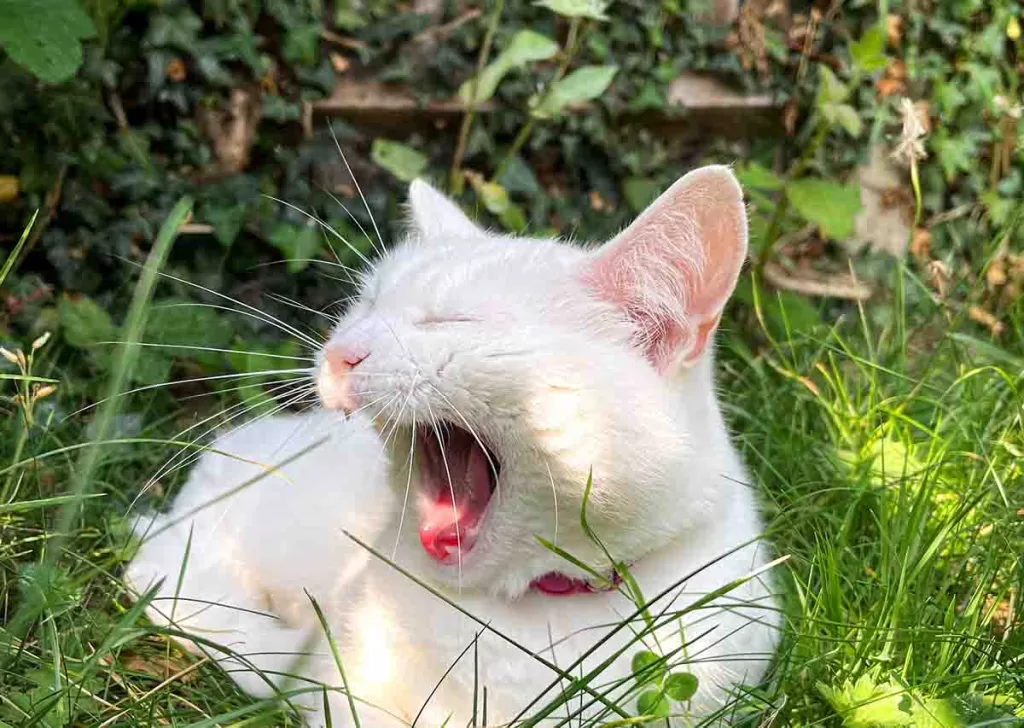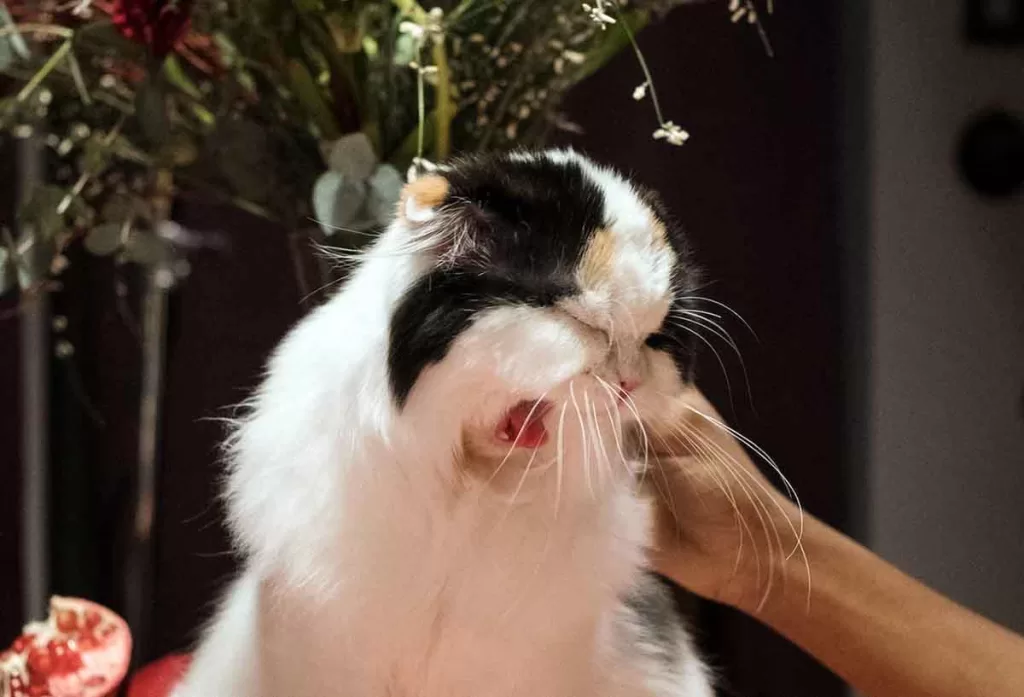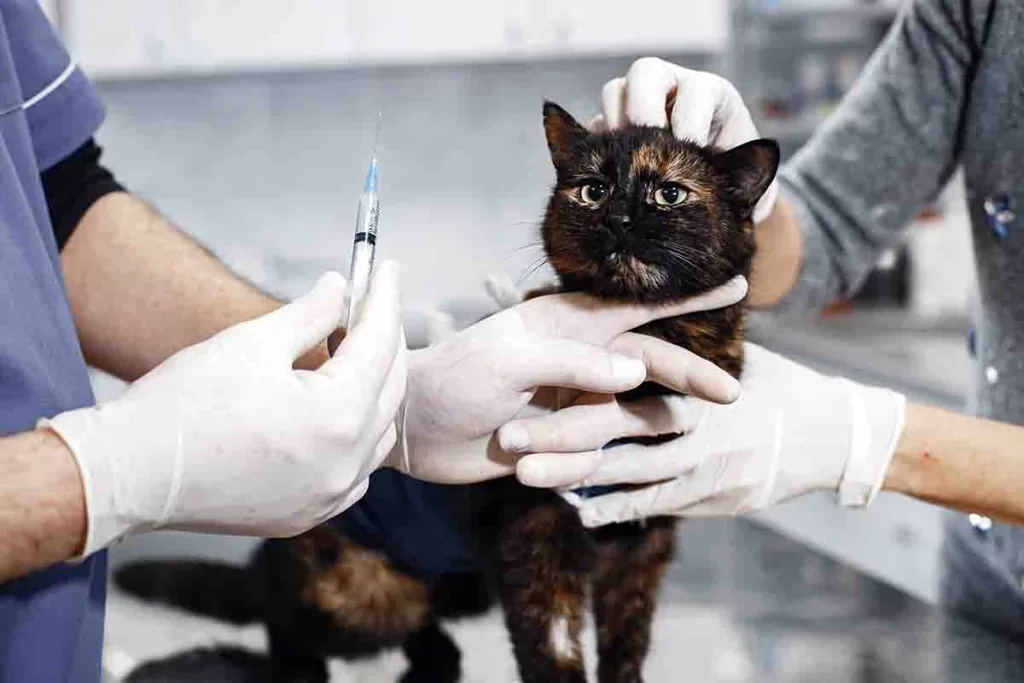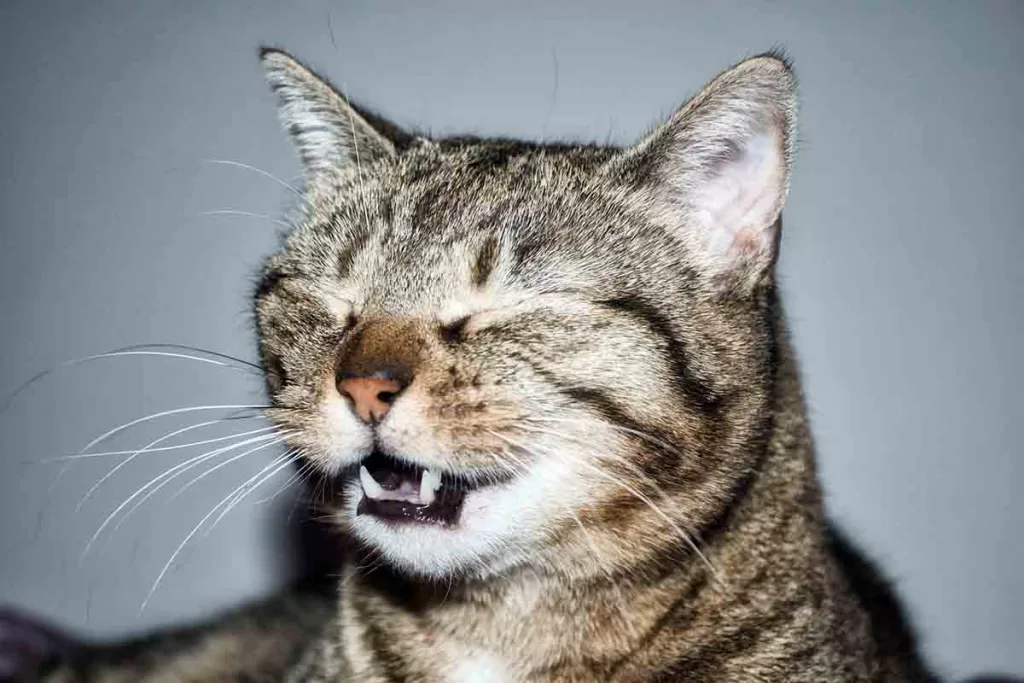Are you worried that your cat isn’t feeling well because they keep sneezing? If so, you’re not alone. Many cat owners worry when their cats start sneezing more than normal.
Your cat may be sneezing due to a variety of reasons including allergies, irritants such as dust or smoke, dental disease, viral or bacterial infections, tumors, or fungal infections. If your cat is continuously sneezing or showing other signs of illness, then veterinary attention is needed.
It is important for cat owners to understand when sneezing is normal and when it is not. In this blog post, we’ll discuss some of these potential causes as well as when it may be time to get help from a vet.
What Makes Cats Sneeze?
Cats sneeze for the same reason people do – it’s a protective reflex triggered by something irritating their air passages.
The sneeze reflex is an uncontrollable reaction of the body that assists in removing irritants, such as dust, pollen, or other foreign objects, from the nasal passages.
Specialized cells in the nasal lining, called sensory receptors, are triggered which then send a signal to the brain which then signals the muscles involved in breathing to forcefully contract. This sudden burst of air rushes out through the nose and mouth, along with any irritants.
The body’s sneeze reflex is a crucial defense mechanism that safeguards the respiratory system against harmful substances and maintains airway health.
What Causes Cat Sneezing?
There are a number of things that can cause your cat to sneeze. Some causes are harmless and pass quickly, but other causes include health conditions that may need veterinary care.
It’s important for cat owners to know what could be causing their cat to sneeze and to keep an eye on their cat’s general health and wellness.
By understanding the causes of sneezing in cats, you can take proactive steps to ensure that your cat stays healthy and happy.
Cats Can Have Allergies
Just like people, cats can be allergic to things in their environment such as dust, pollen, and mold. These allergens can irritate their airways and trigger sneezing or other signs of respiratory distress.
Sneezing due to allergies in cats maybe accompanied by nasal discharge or congestion. Feline asthma, which affects the airways and causes breathing difficulties in cats, can also be triggered by allergens in some cases.
If your cat is experiencing chronic sneezing episodes, it’s possible that they may have an allergy to something in their environment.
If the sneezing is persistent, or if there other allergy symptoms, it is important to consult a veterinarian for proper diagnosis and treatment, as allergies can impact a cat’s quality of life and lead to complications if left untreated.

Cats Can Sneeze Because Of Temporary Irritants
Sometimes, cats sneeze due to temporary or short-term irritants such as dust, smoke, or strong odors.
If your cat is sneezing because of a temporary irritant, it will usually pass on its own once the irritant has been removed from the environment.
Sometimes, the irritant that causes a cat to sneeze can persist. When this happens, it is important to find the source of the irritant and either get rid of it or reduce the cat’s exposure to it.
For example, if your cat is sensitive to dust, you may need to change your cleaning routine or use a different type of litter. If your cat is sensitive to smoke, you should avoid smoking in the house or limit exposure to areas where smoking occurs.
It’s worth mentioning that temporary irritants can worsen existing conditions such as allergies or respiratory infections, in addition to causing sneezing.
It’s important to keep an eye on your cat’s health and see a vet if you notice any symptoms that are getting worse or aren’t going away.
Infections Can Cause Cat Sneezing
Infections, including viral or bacterial infections of the nasal passages can also cause cats to sneeze.
Feline respiratory disease complex is a common upper respiratory infection, or URI, in cats. It can cause sneezing due to inflammation of the nasal and sinus linings, as well as conjunctivitis, watery eyes, drooling, and mouth sores.
The main viruses causing feline respiratory disease complex include The principal diseases feline herpesvirus (FHV), and feline calicivirus, although other viruses may also be involved.
If the sneezing persists for more than a few days, or if there are other symptoms such as nasal discharge, loss of appetite, coughing or fever, it is important to take your cat to the vet for a full exam and possible testing.
Your veterinarian can determine what is causing the sneezing and provide appropriate treatment.
Foreign Objects In The Sinuses Can Cause Cat Sneezing
Sometimes, cats can sneeze because of having a foreign object in their sinuses. This occurs when they sniff or inhale a small item like a toy, a grass seed, or a piece of food, which then gets stuck in their nasal passages.
When a foreign object enters a cat’s sinuses, it can cause irritation to the delicate lining, resulting in the cat sneezing excessively and experiencing discomfort.
If you think your cat may have a foreign object stuck in their sinuses, it’s crucial to contact a veterinarian immediately. Complications such as infection, inflammation, and tissue damage to the nasal passage can arise if a foreign object is not treated promptly.
The vet will do a physical examination and may use imaging tests like X-rays or CT scans to identify the foreign object’s location and type.
Sometimes, a procedure called endoscopy may be required to remove an object from the nasal passages. During this procedure, a thin and flexible tube with a camera at the end is inserted to visualize and extract the object.
Early intervention for cases of foreign objects lodged in your cat’s sinuses can help prevent further complications and ensure a speedy recovery.
Nasal Mites May Cause Cat Sneezing
Although rare even in dogs, canine nasal mites can infest cats. Canine nasal mites are a type of parasitic mite of dogs that can cause a range of respiratory symptoms, including sneezing and nasal discharge.
Nasal mites can cause irritation and inflammation in the lining of a cat’s nasal passages, leading to discomfort. In more severe cases, the mites can damage the nasal tissues and result in respiratory issues.
Nasal mites spread mainly through direct contact with an infected animal. Additionally, they can be transmitted by sharing bedding, grooming tools, and other objects.
It can be difficult to diagnose nasal mites in cats because their symptoms resemble those of other respiratory infections. But, your vet can perform several tests to identify if nasal mites are causing your cat’s symptoms.
A commonly used test to diagnose nasal mites is the nasal flush, which is also called nasal lavage. The procedure involves flushing the nasal passages with a sterile saline solution, and then examining the resulting fluid under a microscope to detect the presence of mites or their eggs.
To eliminate other potential reasons for your cat’s symptoms, your veterinarian might conduct other diagnostic assessments, like blood tests, x-rays, or CT scans.
Your veterinarian will suggest a treatment plan for your cat’s nasal mites based on how severe the infestation is and your cat’s overall health. The plan may involve administering medications like antiparasitic drugs or antibiotics.

Dental Disease Can Cause Cat Sneezing
Dental disease can cause more than just gum infection. It can also lead to problems like tooth decay, periodontal disease, and other oral health issues. These can result in inflammation and infection in the tissues around the teeth.
The bacteria causing the dental disease can spread to other parts of the body such as the nose and sinuses, causing inflammation and irritation which, of course, leads to sneezing.
Tumors Can Cause Cat Sneezing
Cats can experience various symptoms if they have tumors, regardless of whether they are benign or malignant. Obstruction or blockage of the nasal passages due to tumor growth can lead to respiratory issues, including sneezing.
Nasal polyps are benign tumors that can slowly grow and gradually block the nasal passages. Although typically non-cancerous, these growths may cause discomfort and irritation for your cat.
Nasal carcinomas are malignant tumors that may grow faster and spread more aggressively, possibly needing a more intensive treatment.
Nasal tumors in cats may cause additional symptoms, such as nasal discharge, breathing difficulties, reduced appetite, and weight loss, in addition to sneezing. Older cats in particular should be suspect for nasal tumors if they have these symptoms.
Fungal Infections Can Cause Cat Sneezing
Sneezing in cats can be caused by fungal infections, although they are not very common. Such infections can happen when a cat breathes in fungal spores from sources like contaminated soil, bird droppings, etc.
Fungal spores may grow in a cat’s respiratory system and result in inflammation and irritation of their nasal passages. Aspergillosis and candidiasis are two types of fungal infections that are frequently seen in cats.
Cats with a fungal infection may exhibit symptoms such as sneezing, coughing, nasal discharge, and difficulty breathing. If left untreated, the infection can spread to other parts of the body and cause more severe health problems.

When Should I Worry About My Cat Sneezing?
Sneezing is usually a minor issue, but it can be a sign of more serious health problems in certain situations. If your cat has only mild symptoms, you may probably want to monitor it for a few days.
If your cat continues to sneeze for more than a few days, or if the sneezing is accompanied by other symptoms you should consult your veterinarian.
Besides continued sneezing, you should be concerned if your cat shows symptoms like nasal discharge, difficulty breathing, coughing, vomiting, loss of appetite, or weight. In these cases, your cat may require prompt medical attention.
Your veterinarian will be able to assess your cat’s symptoms and determine the underlying cause so they can prescribe a suitable treatment plan. In some cases, further tests such as x-rays or blood tests may be necessary to make a diagnosis.
Summary
Sneezing is a common problem in cats, but it can also be an indication of more serious health issues. Treatment for sneezing depends on the underlying cause and severity of the problem.
If your cat continues to sneeze or shows other symptoms like nasal discharge, coughing, difficulty breathing, loss of appetite, vomiting or weight loss, then it is important to consult your veterinarian. They will be able to assess the symptoms and provide a suitable treatment plan for your cat.
It is also important to keep an eye on your cat in case their condition worsens or new symptoms appear. Early detection can go a long way in helping cats with sneezing problems.
We hope this article has provided useful information about the various reasons cats sneeze and when to worry. If you have any questions or concerns, please don’t hesitate to contact your veterinarian for more information.


